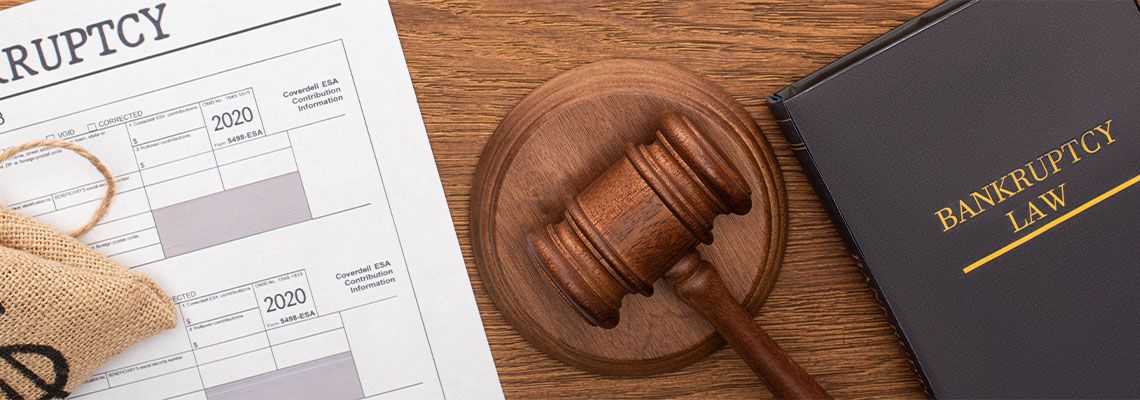
What Not to Do Before Filing for Bankruptcy
Did you know that since the onset of the COVID-19 pandemic, there have been nearly two million bankruptcy filings throughout the United States? Bankruptcy can happen to anyone, and if you are considering filing for bankruptcy, know that you are not alone.
Over the years, I have seen a plethora of unique scenarios, unforeseen circumstances, and a vast array of financial mistakes. In many cases, bankruptcy can be the best way out of overwhelming and unmanageable debt. Moreover, I have even witnessed the best financial planners fall victim to financial chaos. The bottom line is bankruptcy can happen to anyone and, despite what you may think, it certainly isn’t a financial death sentence.
During my initial consultation with clients, one of the most frequent questions I am asked is “What do I need to do to file bankruptcy?” Although this is a critical question that must be answered and understood by anyone engaging in the bankruptcy process, it’s equally important to understand what not to do along the way.
Should You Use Your Retirement Account to Pay Off Debts?
No. Many financial planners as well as experienced bankruptcy attorneys would suggest that using any form of pension, retirement plan, or 401k to pay off debt is a bad idea. Unless your financial circumstances exponentially change (which is unlikely for most folks), it is likely you will need that income later in life. In the short term, making retirement withdrawals early can come with steep penalties that can quickly evaporate a high percentage of what you have accumulated.
Is It Okay to Acquire New Debt?
Acquiring new debt can make things worse. What may seem like a no-brainer takes intentional awareness to avoid. Bankruptcy courts closely analyze spending and credit habits. Frivolous spending creates the perception that you are acting in poor faith or may be committing bankruptcy fraud.
Moving Assets
Don’t believe the lie that if an asset is transferred or moved to a friend or family member, it does not need to be disclosed in a bankruptcy filing. Transferring titles, assets, and cash in an attempt to blind creditors is not only illegal but is also the quickest way to sabotage your bankruptcy claim and potentially face federal fraud charges.
Filing Taxes
One of the early steps in the bankruptcy filing process is to provide up-to-date tax records. Taxes are usually treated as non-dischargeable debt, and you shouldn’t expect bankruptcy to eliminate any unpaid or avoided taxes. In addition, even though an “automatic stay” in the bankruptcy process stops creditors, including the IRS, from contacting and collecting debt, it doesn’t necessarily eliminate any future contact. It’s far better to be proactive and file taxes properly rather than have the IRS file a claim on your behalf, which will almost always result in a higher amount owed.
Don’t Misrepresent Your Information
Do bankruptcy courts really need to know everything about your finances? The answer is a resounding yes. If you misrepresent or are untruthful about any of the information included in your signed bankruptcy claim, you violate federal bankruptcy policies. Not only will this immediately discharge your claim, you are now subject to severe penalties and even criminal charges. Claiming ignorance won’t work in bankruptcy court, either. Always be sure your information is truthful and accurate.
Can You Selectively Pay Off Debts?
Choosing to preserve or honor personal relationships by repaying friends and family loans rather than paying minimum credit card debts is risky business. Most individuals fall into this pitfall because they believe the more official debts will be discharged or restructured through bankruptcy. What most people don’t know is that when you offer preferential payment for one creditor over another, bankruptcy courts can reverse payment and require those that received preferential payment to return the money. It’s far better to make a minimum payment on all of your debts as you engage in the bankruptcy process.
Filing Without Legal Guidance
The bankruptcy process can be confusing and complex. Knowing what to do and what not to do is critical in avoiding mistakes that can jeopardize the fresh start you desire. Even simple mistakes or unintentional errors in the process can affect your claim and create additional financial strain. As an experienced bankruptcy attorney, I know the do’s and don'ts of bankruptcy and can accurately guide you through the entire process, start to finish.
How Pytte Law Can Help
At Pytte Law, I have helped countless individuals explore and engage the bankruptcy process the right way. Whether you are just starting to consider options, have initiated the process yourself, or are curious about refilling, I am here to provide trustworthy and accurate next steps. From determining which chapter is best for your situation, to gathering essential documentation and speaking with creditors, I will uphold a high standard of care and representation. I serve clients in Savannah and Hinesville, Georgia as well as neighboring cities of Statesboro, Richmond Hill, and Ludowici. Call today to learn more.